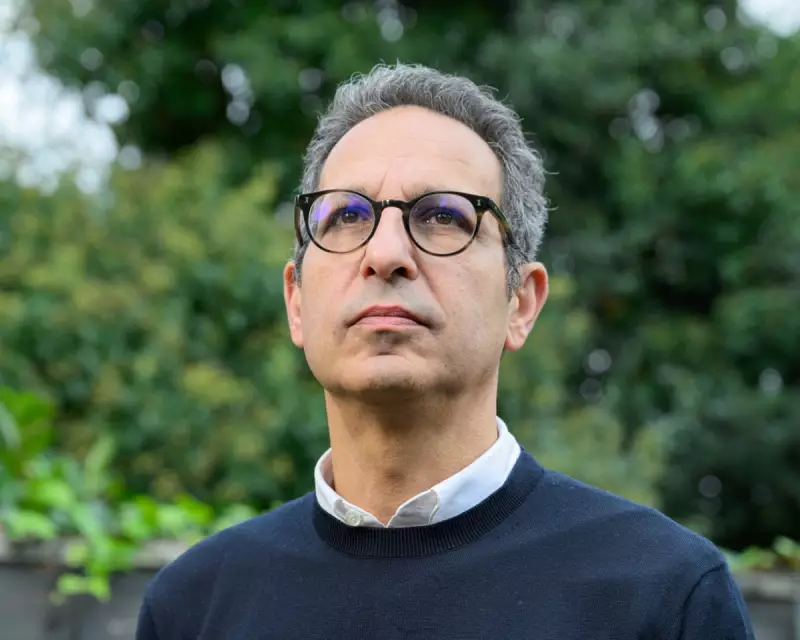
Enver Solomon, the Chief Executive of the Refugee Council, is reflecting on a particularly grim week for Britain's asylum sector. Speaking from his London home, Solomon detailed his reaction to the Labour government's controversial new plans, which he describes as a profound letdown for those who had hoped for a more compassionate approach.
A New Low in Asylum Policy
The week began with Home Secretary Shabana Mahmood announcing a suite of hardline measures. These included the power to revoke refugee status if a home country is later deemed safe, extending the pathway to citizenship to 20 years, using AI for age assessments, and even the potential seizure of jewellery from new arrivals.
While political pundits debated whether this was enough 'red meat' to counter Reform UK, Solomon was grappling with the human impact. "There's been lots of terrible weeks," he stated, a veteran of numerous political battles over asylum. "So I'm used to it." He recalled previously believing the Conservative's Rwanda scheme was the absolute worst, a policy that cost £700m and deported just four people voluntarily.
He also referenced the harrowing 2024 incident at a Rotherham hotel, where staff from his organisation received live streams from people inside as a far-right mob attacked the building. Yet, he concedes that hearing such plans from a Labour government makes it "more of a letdown, more of a disappointment." He echoed Labour peer Alf Dubs, who called the plans "grubby," a sentiment underscored when far-right figure Tommy Robinson applauded Mahmood's announcement.
Hostile Rhetoric and Its Real-World Consequences
Solomon, whose own background is steeped in stories of refuge and resilience, remains a determined optimist by professional necessity. His mother fled apartheid South Africa, and his father's Jewish forebears escaped pogroms in Eastern Europe. He believes a "decent majority" of Britons still support treating people with dignity.
He pointed to the public outrage over the Windrush scandal and the painting over of cartoon murals in a children's unit in Dover as evidence of this inherent decency. However, he warned that mainstream political rhetoric has become dangerously toxic. "Some of the language you hear now about refugees, the BNP would have used a few decades ago, and everyone was aghast at it then," he observed.
This atmosphere has tangible consequences. He shared an alarming anecdote from the south-west, where local residents mistakenly protested against a group of brown-skinned men outside a building, assuming it was an asylum hotel. It was student accommodation. The men were British students. The hostility has escalated to the point where the Refugee Council has had to implement security measures at its offices and Solomon's own home, an unthinkable step just two years ago.
The Flawed Logic and Human Cost of New Measures
Solomon was scathing about the practicalities and morality of Labour's proposed policies. The plan to review refugee status every 30 months would, according to Refugee Council estimates, cost £872m over a decade to administer, creating a vast new bureaucracy.
He painted a vivid picture of the human impact: a child excelling in their GCSEs, fully integrated and aspiring to be a teacher or scientist, suddenly facing removal to a country they barely remember. "Is that who we are as a country?" he asked. He also raised the troubling question of what happens to children born in the UK to parents stuck in the proposed 20-year limbo, potentially creating a two-tier system of citizenship.
Instead, Solomon argues the government should focus on competence and clearing the asylum backlog, which has forced tens of thousands into expensive, inadequate hotels. Granting limited leave to remain to people from countries with high grant rates, like Afghanistan and Syria, would allow them to work and contribute while their cases are processed, a move he says would be more efficient and humane.
He forcefully countered the narrative that refugees are workshy or drawn to benefits, explaining that for many, state dependency is "deeply humiliating" and anathema to their culture. He also rejected the racist link to criminality, stating simply, "They're just people, like you and me."
After five intense years leading the Refugee Council, Solomon is moving to a new role at the criminal justice charity Nacro in January, citing the relentless pressure of the job. Despite the exhaustion, his core belief in justice remains unshaken, quoting Martin Luther King that the arc of the moral universe bends towards justice. For Enver Solomon, the fight continues, even if the battlefield is changing.





